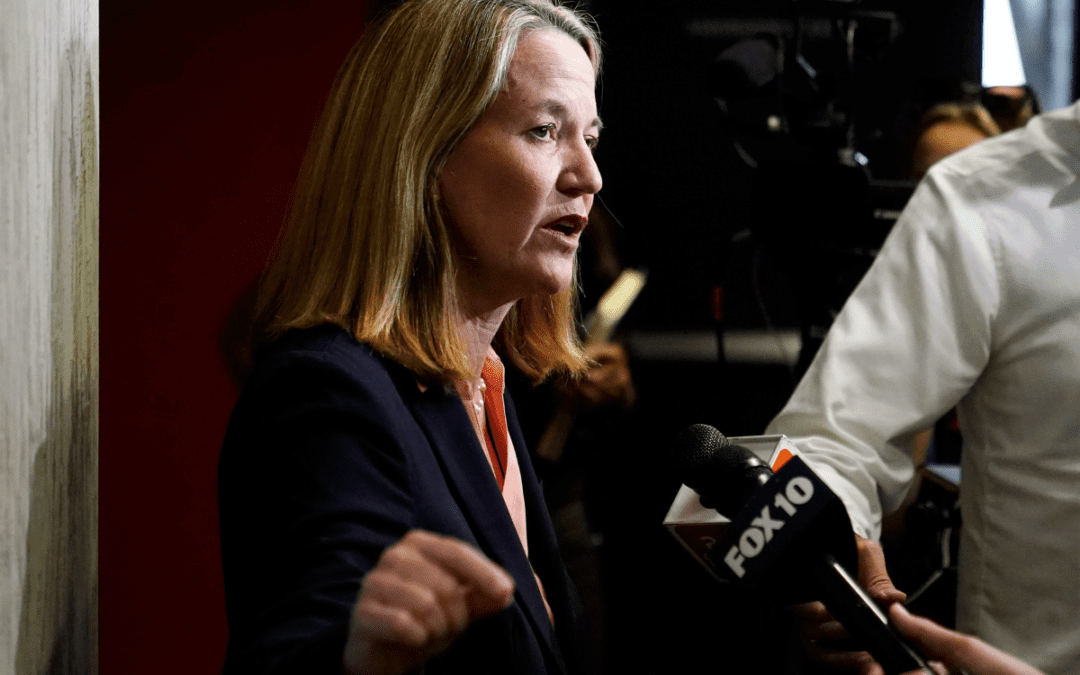
While the pay bump will affect the 17,479 active duty service members in Arizona, this year’s National Defense Authorization Act is just the latest example of the increasingly partisan landscape of modern American politics. (Photo via Shutterstock)
President Joe Biden is expected to sign the latest annual defense bill before the end of the year, and this time, it includes a 5.2% pay raise for service members—the largest bump in pay in two decades.
The National Defense Authorization Act (NDAA) was approved by the House on Thursday in a 310-118 vote, following Senate approval in a 87-13 vote. In total, the bill authorizes $886 billion for national defense programs for the current fiscal year that began Oct. 1.
“The NDAA provides the critical authorities we need to build the military required to deter future conflicts while supporting the service members and their spouses and families who carry out that mission every day,” the White House said in a statement issued earlier this week.
This pay raise will affect the roughly 1.1 million active duty service members in the United States and the 17,479 members in the state of Arizona, according to the latest data from the Department of Defense.
Approval came after months of negotiations between parties; in July, each chamber passed extremely different versions of the bill.
The final bill dropped House Republicans’ proposed provisions that would have blocked the Pentagon’s existing policies of covering travel for service members seeking abortions, as well as gender-affirming care for transgender troops. These policies were instituted last year in a Biden administration effort to expand access to reproductive health care in the wake of the Supreme Court’s decision to overturn Roe v. Wade.
The final bill, however, did include some GOP-backed efforts to curb the Pentagon’s diversity programs, for example, by freezing hiring for Pentagon jobs focused on diversity initiatives. The legislation also bans promoting “critical race theory” (CRT). CRT is an academic-legal framework that explains how racism can be embedded in laws and policies that discriminate against people of color, but the bill defines it as the theory that people of certain races “bear collective guilt and are inherently responsible for actions committed in the past” by those of the same race.
The bill also includes a short-term extension of a surveillance program aimed at catching spies and preventing terrorism, continuing a program that permits the federal government to collect communications of non-Americans located outside of the country without a warrant. This extension had critics on both sides of the aisle who viewed it as a threat to privacy for American citizens.

BREAKING: AG Kris Mayes sues rental corporations for conspiratorial price-fixing
It looks like, legally speaking, rent really may be “too damn high.” Arizona Attorney General Kris Mayes announced Wednesday a lawsuit against nine...

Op-ed: Trump’s journey from hosting The Apprentice to being the biggest loser
Leading up to the 2016 election, Donald Trump crafted an image of himself as a successful businessman and a winner. But in reality, Trump has a long...

Kari Lake’s plan for the US Senate: ‘The end of democracy’
The world’s most far-right political leaders flocked to National Harbor, Maryland, last week for a conservative conference where attendants idolized...

Flight attendants picket at more than 30 airports in ‘unprecedented’ show of solidarity
Hundreds of flight attendants picketed at Phoenix Sky Harbor Airport last week, calling attention to stagnant wages with low purchasing power, poor...




